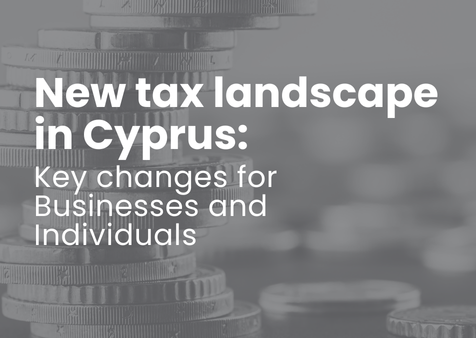In response to the concerns raised by the European Union Code of Conduct Group for Business Taxation and the recent OECD guidance regarding economic substance of entities in jurisdictions that subject corporate profits to zero or near zero rates, the British Virgin Islands Government published the Economic Substance (Companies and Limited Partnerships) Act, 2018 which came into effect on 1 January 2019.
The Act, supplemented by a Code for the interpretation of the legislation, imposes substantive economic substance requirements on relevant legal entities that are tax resident in the jurisdiction and which carry on relevant activities during any financial period in which they received income from that activity.
As further guidance, the legislation applies to legal entities incorporated in the BVI (companies and limited partnerships), as well as to foreign partnerships (except for partnerships that do not have the status of a legal entity) conducting regulated activity in the BVI. If the company or partnership is tax resident in a jurisdiction outside the BVI, it does not fall within the scope of the new rules.
What is a relevant Activity?
- Banking Business: which includes the activities of raising funds, managing risk, taking hedge positions, providing loans, credit or other financial services to customers, managing regulatory capital and preparing regulatory reports and returns.
- Insurance Business: predicting and calculating risk, insuring or re-insuring against risk and providing insurance business services to clients.
- Fund management business: taking decisions on the holding and selling of investments, calculating risk and reserves, taking decisions on currency or interest fluctuations and hedging positions, preparing regulatory and other reports for government authorities and investors.
It should be noted that the business of being an investment fund is not a relevant activity and therefore falls outside the scope of the Act unless it is carrying on a relevant activity besides being an Investment Fund.
- Finance or Leasing business: agreeing funding terms, identifying and acquiring assets to be leased (in the case of leasing), setting the terms and duration of any financing or leasing, monitoring and revising any agreements and managing any risks.
- Holding business: means ‘the business of being a pure equity holding entity’. A pure equity holding entity is one that only holds equity participations in other entities and only earns dividends and capital gains.
It should be noted that such legal entities are subject to a less rigorous substance regime than other forms of relevant activities. Adequate substance requirements in these cases will be fulfilled if they comply with their statutory obligations and have adequate employees and premises for holding, and where relevant, managing those equity participations.
Those legal entities which hold assets other than equity participations will not fall within the definition of a pure equity holding company, but may be found to carry on other relevant activities.
- Headquarters business: taking relevant management decisions, incurring expenditures on behalf of affiliates and coordinating group activities.
- Shipping business: managing the crew, hauling and maintenance of ships, overseeing and tracking deliveries, determining what goods to order and when to deliver them, organizing and overseeing voyages.
- Intellectual property business: where the business concerns intellectual property assets such as patents, research and development, non-trade intangible assets such as brand, trademark and customer data, marketing, branding and distribution.
- Distribution and service center business: transporting and storing goods, managing stocks, taking orders and providing consulting or other administrative services.
It should be noted that the list of Core Income Generating Activities set out in the Act will not be treated as exhaustive. The BVI International Tax Authorities (ITA) will look to ensure that the core elements of the relevant activity that the legal entity does carry out are carried out in the BVI except of course for Holding businesses where this is not a requirement.
What are the Economic Substance Requirements?
A legal entity that is resident in the BVI and carries out any of the above relevant activities, other than Holding Business, must be directed and managed in the BVI, have an adequate number of suitably qualified employees who are physically present in the BVI, incur adequate expenditure and have appropriate premises. Additional requirements are imposed on companies engaged in the business of intellectual property.
The term ‘directed and managed’ relates to the activity rather than the legal entity as a whole, unless the legal entity’s only business is the relevant activity or activities in question.
Furthermore, having direction and management in the BVI means having an adequate number of board meetings held in the BVI, a quorum of directors physically present in the BVI even though there is no requirement that directors are BVI resident, an adequate level of expertise among board members and the keeping of board meeting minutes in the BVI.
When does the financial period start for testing purposes?
For legal entities conducting relevant activities, the date from which they are obliged to comply with the Act is based upon whether they were formed prior to, or after, 1 January 2019, and what is deemed to be the entity’s initial financial period for the purpose of the Act.
- The initial financial period for new entities, formed after 1 January 2019, is deemed to be 12 months from the date of formation.
- For entities that were in existence on 1 January 2019, the initial financial period is deemed to be 12 months from 30 June 2019.
In either case, all legal entities must report to the BVI ITA by 31 December 2020 the latest.
It should be noted that even if an entity concludes that it does not carry out a Relevant Activity or is not considered to be tax resident in the BVI, it still has an obligation to report these conclusions outlining the jurisdiction in which it is a tax resident.
Furthermore, it is also important to note that where an entity is resident and carrying out Relevant Activities then the obligation to comply with the relevant substance requirements begins at the commencement of the initial financial period and not the reporting deadlines mentioned above.
What will happen if an entity does not comply?
The rules specify penalties of two types for non-compliance.
The first of the two is the provision of incorrect (false) information which involves a fine from USD 40,000 up to USD 250,000. Guilty persons may be imprisoned for up to five years.
The second type is the failure to pass the economic substance test, which will take into account whether this is the first or second instance of non-compliance. The first instance of non-compliance will involve a notice and a fine of USD 5,000. The second will involve a fine of USD 200,000 (USD 400,000 for certain IP companies) or possibly even striking the entity off the register.
Additionally, the BVI tax authorities will disclose information to their peers in other countries.


